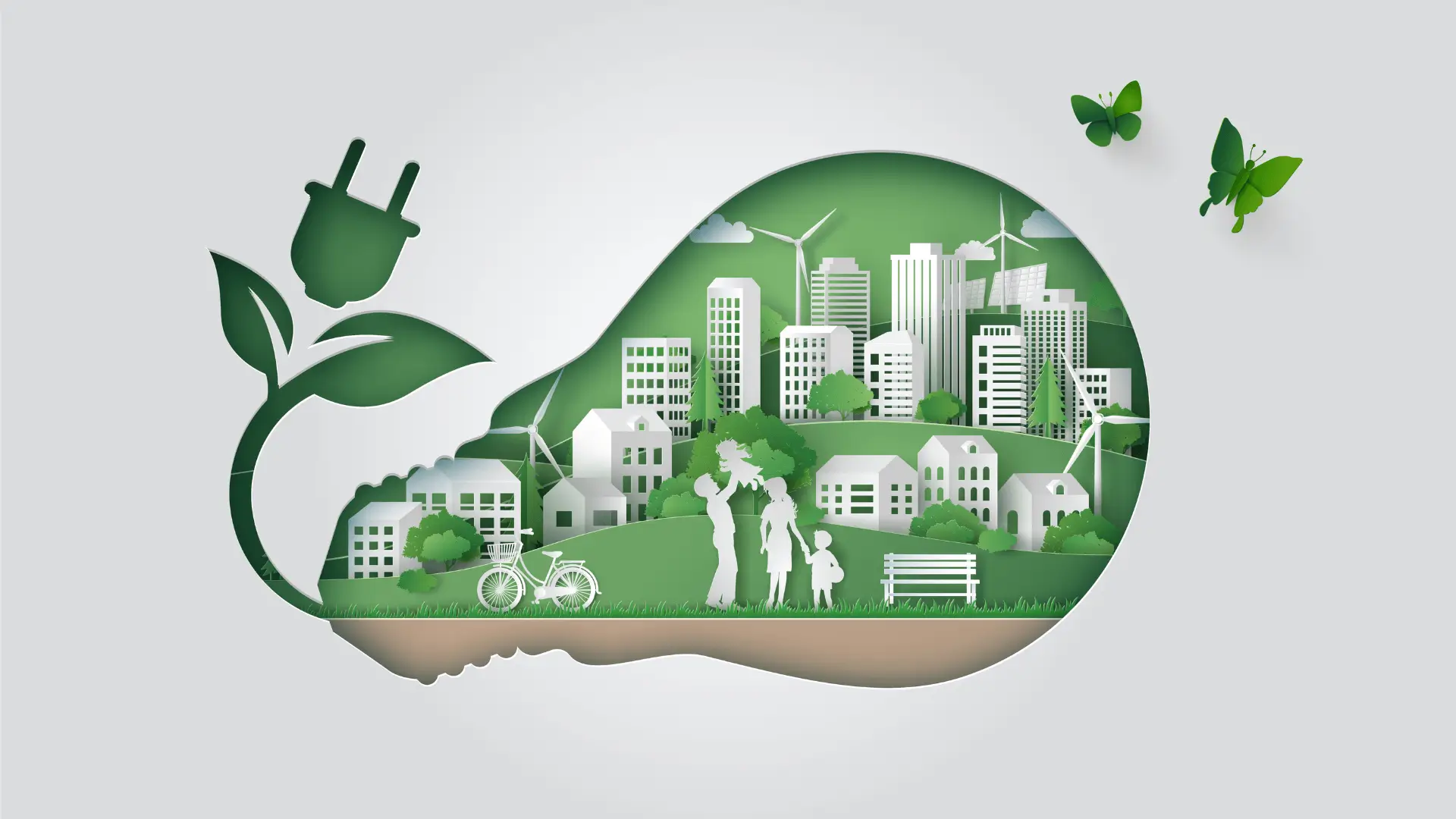Eco-innovation, coupled with the expert guidance of sustainability consultancies, plays a pivotal role in reshaping products and processes to align with sustainable business practices. This transformative approach not only benefits businesses but also contributes to the overall well-being of the environment. By incorporating eco-friendly practices into their operations, companies in Malaysia are driving positive change and reaping numerous advantages.
In today’s world, where environmental concerns are growing, the significance of eco-innovation cannot be overstated. It involves developing and implementing new solutions that harmonize economic growth with ecological sustainability. Sustainability consultancies play a crucial role in supporting businesses in their eco-innovation journey by providing guidance, expertise, and necessary resources.
Embracing eco-innovation not only helps companies comply with environmental regulations but also enhances their competitive advantage in the market. By adopting sustainable practices and redesigning their products and processes, businesses can improve their performance, reduce their environmental footprint, and attract eco-conscious consumers.
In this article, we will delve into the realm of eco-innovation in Malaysia, exploring its importance in reshaping products and processes. We will also highlight the instrumental role that sustainability consultancies play in driving this transformative change.
The Concept of Eco-Innovation
Eco-innovation is a crucial driver of sustainable business performance, reshaping products and processes in alignment with environmental goals. It involves developing and implementing new ideas, technologies, and practices that minimize negative impacts on the environment, improve resource efficiency, and contribute to the transition towards a circular economy.
At its core, eco-innovation aims to meet societal and environmental needs while simultaneously generating economic value. It goes beyond mere compliance with environmental regulations and involves a proactive approach to developing sustainable solutions. By integrating ecological considerations into innovation processes, businesses can create products and services that reduce their ecological footprint and address pressing environmental challenges.
The significance of eco-innovation in the context of sustainable business performance cannot be overstated. It not only enhances a company’s environmental credentials but also provides a competitive advantage. By incorporating eco-innovation into their strategies, businesses can tap into new markets, attract environmentally conscious consumers, and differentiate themselves from their competitors.
Moreover, eco-innovation drives cost savings and operational efficiency by reducing resource consumption and waste generation. It also fosters resilience and adaptability in the face of environmental risks and regulatory changes. Businesses that embrace eco-innovation are well-positioned to thrive in the transition towards a more sustainable future.
The Role of Sustainability Consultancies
Top sustainability consultants play a crucial role in driving eco-innovation by providing guidance, expertise, and support to businesses in Malaysia. These specialized firms understand the importance of incorporating sustainability principles into business strategies and operations. By leveraging their knowledge and experience, they help businesses navigate the complexities of eco-innovation and implement effective solutions.
Guiding Businesses towards Sustainable Practices
Sustainability consultancies act as trusted partners for businesses seeking to adopt sustainable practices. They work closely with companies in various sectors, assisting them in identifying environmental issues, assessing risks, and developing strategies to minimize their ecological footprint. These consultancies offer valuable insights into emerging trends, regulations, and best practices related to eco-innovation.
Expertise in Sustainable Business Strategies
Sustainability consultancies possess extensive expertise in sustainability management and eco-innovation. They are well-versed in the latest industry standards, frameworks, and methodologies. By drawing upon this knowledge, consultancies are able to tailor their guidance to each client’s specific needs and industry requirements. This expertise extends to areas such as green manufacturing processes, waste reduction strategies, renewable energy solutions, and eco-friendly packaging.
Support throughout the Eco-Innovation Journey
From ideation to implementation, sustainability consultancies provide continuous support to businesses. They assist in the development and execution of eco-innovation strategies, helping companies identify opportunities for improvement and assess the feasibility of sustainable initiatives. By leveraging their network of experts and partners, consultancies offer access to additional resources, technologies, and funding opportunities that can accelerate the adoption of eco-friendly practices.
Driving Business and Environmental Advantages
Engaging with sustainability consultancies not only ensures companies stay ahead of regulatory requirements but also positions them as leaders in their respective industries. Through eco-innovation, businesses can achieve a competitive advantage by reducing costs, improving resource efficiency, and enhancing brand reputation. Sustainability consultancies help businesses navigate these opportunities, enabling them to reap the financial benefits of eco-innovation while making a positive environmental impact.
Benefits of Eco-Innovation
Eco-innovation offers a plethora of benefits for businesses, the environment, and society as a whole. By embracing sustainable practices and implementing eco-friendly solutions, companies can create a positive impact on various fronts. Let’s explore some of the key benefits of eco-innovation:
Improved Environmental Performance
Eco-innovation plays a crucial role in reducing the environmental footprint of businesses. By adopting sustainable practices, companies can minimize resource consumption, waste generation, and greenhouse gas emissions. For instance, implementing energy-efficient technologies and adopting renewable energy sources can significantly reduce carbon emissions. Moreover, eco-innovation encourages the use of eco-friendly materials and production processes, leading to a more sustainable use of resources and a reduction in pollution levels.
Competitive Advantage
Companies that prioritize eco-innovation gain a competitive edge in the market. With increasing demand for environmentally-friendly products and services, businesses that align with sustainability goals are more likely to attract environmentally-conscious consumers. By differentiating themselves as eco-friendly brands, these companies can capture a larger market share, build customer loyalty, and enhance their brand reputation. Eco-innovation allows businesses to stay ahead of regulatory requirements and adapt to changing consumer preferences, giving them a distinct competitive advantage.
Financial Benefits
Contrary to popular belief, eco-innovation can be financially rewarding for businesses. Implementing sustainable practices often leads to cost savings through reduced resource consumption, improved energy efficiency, and optimized waste management. For instance, replacing traditional printing inks with vegetable oil-based inks, as demonstrated by the successful case study of Accel Graphic System in Malaysia, not only improves environmental performance but also lowers production costs in the long run. Additionally, eco-innovation opens up new revenue streams by tapping into the growing market for eco-friendly products and services.
Implementing Eco-Innovation Strategies
When it comes to implementing eco-innovation strategies in Malaysian industries, businesses have a plethora of approaches and tools at their disposal. These strategies focus on reshaping products, processes, and supply chains to align with sustainable practices. By adopting eco-innovation, businesses can not only enhance their environmental performance but also gain a competitive advantage in the marketplace.
-
Embrace Sustainable Design Principles
One of the key strategies for implementing eco-innovation is to incorporate sustainable design principles into product development. This involves considering the entire lifecycle of a product, from sourcing raw materials to disposal. By using environmentally friendly materials, optimizing energy efficiency, and designing for recyclability or reuse, businesses can minimize their ecological footprint and contribute to a circular economy. Sustainable design can lead to eco-friendly products that resonate with environmentally conscious consumers.
-
Foster Collaboration and Partnerships
Collaboration is a vital component of successful eco-innovation. Businesses can partner with sustainability consultancies, industry associations, research institutions, and government agencies to leverage expertise, resources, and funding opportunities. These partnerships enable knowledge sharing and collective problem-solving, fostering innovation and driving sustainable practices across the industry. By working together, businesses can accelerate the adoption of eco-friendly technologies and practices, creating a more sustainable future for Malaysia.
-
Invest in Employee Education and Training
To effectively implement eco-innovation strategies, businesses must invest in educating and training their employees. This involves raising awareness about the importance of sustainability, providing training on eco-friendly practices, and encouraging a culture of innovation and continuous improvement. By empowering employees with the knowledge and skills to integrate sustainability into their daily work, businesses can drive positive change from within and ensure the successful implementation of eco-innovation initiatives.
-
Leverage Technology and Digital Solutions
Technology plays a crucial role in enabling eco-innovation. Businesses can leverage advanced technologies such as data analytics, artificial intelligence, and the Internet of Things (IoT) to optimize resource utilization, monitor environmental performance, and identify areas for improvement. Digital solutions can streamline processes, minimize waste, and facilitate the transition to more sustainable practices. For example, implementing energy management systems or utilizing digital platforms for supply chain transparency can enhance eco-efficiency and drive innovation.
-
Monitor and Measure Performance
To ensure the effectiveness of eco-innovation strategies, businesses need to monitor and measure their environmental performance. Establishing key performance indicators (KPIs) and regularly tracking progress allows businesses to identify areas of success and areas for improvement. By embracing eco-innovation metrics such as energy consumption, waste generation, carbon emissions, and water usage, businesses can set targets, track their achievements, and continuously strive for greater sustainability.
Conclusion
Eco-innovation plays a crucial role in reshaping products and processes in Malaysia, leading to sustainable business performance and competitive advantage. Throughout this article, we have explored the concept of eco-innovation and its significance in the context of sustainable development.
Sustainability consultancies also play a vital role in driving eco-innovation by providing guidance and expertise to businesses in Malaysia. With their support, companies can identify and implement strategies and tools to enhance their eco-innovation capabilities. By adopting circular economy practices, renewable energy solutions, and waste reduction strategies, businesses can achieve improved environmental performance, financial benefits, and a more sustainable supply chain.
As Malaysia continues to address environmental challenges and aim for a more sustainable future, eco-innovation will be a crucial catalyst for change. By embracing eco-friendly practices and developing more sustainable products and processes, businesses can not only contribute to the state of the natural environment but also gain a competitive advantage in the market.
Overall, eco-innovation is a powerful driver of positive change and transformation in Malaysia. It presents a real business opportunity for companies to create more sustainable and innovative solutions while benefiting the environment and society as a whole. Therefore, integrating eco-innovation strategies into business models is a key step towards a greener and more sustainable future in Malaysia.




